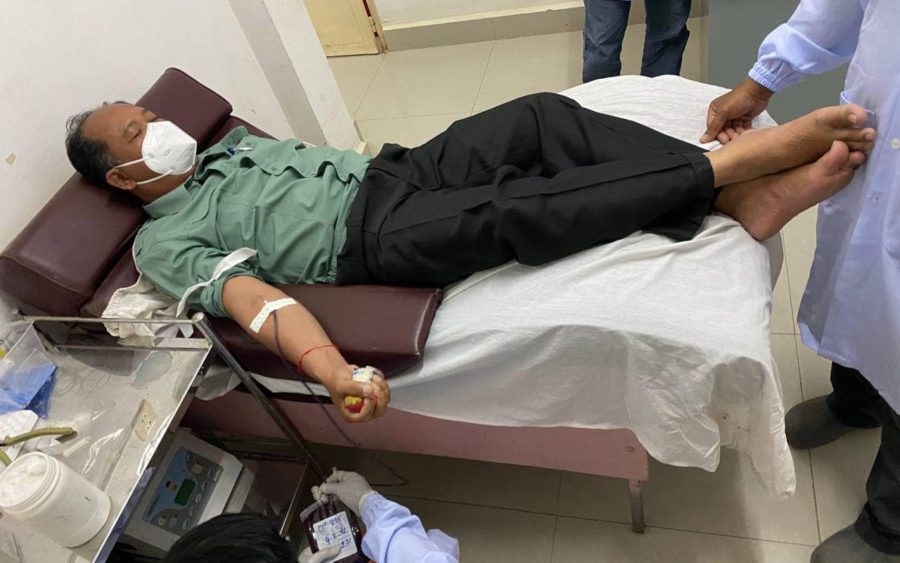The Banteay Meanchey provincial health department is investigating the conduct of a public district hospital for allegedly extorting patients after the provincial governor railed against the hospital for asking money before the surgery of a prime ministerial bodyguard.
The department established a working group to investigate the facility after the Banteay Meanchey governor posted a complaint to Facebook about the Cambodia-Japan Friendship Hospital in the province’s Mongkol Borei district on Saturday, saying there was no ethics in taking money from patients for treatment.
Oum Reatrey, the governor, said that he had donated blood that morning to one of the prime minister’s bodyguards, named In Ly An, who was waiting for an emergency surgery at the hospital. But according to Reatrey, the hospital’s director said the patient needed to pay before the surgery would be performed.
“What kind of management is this,” he asked in the post. “This should be considered for a manager who does not care about ethics and does not know how to manage work. This is not the first time that people have complained about the hospital’s services.”
Reatrey said on Monday that he could not comment as he was busy.
Chan Vuthy Navuth, the director of the hospital, said “please end it, thank you,” before hanging up.
Le Changsangvath, director of the provincial health department, told local news outlet Kampuchea Thmey on Monday that the province created a working group to investigate the governor’s complaint.
“If the case is found to be in error in the work of leading health providers, we will take legal action to impose penalties,” he said.
Rath Chea Sinong, governor of Mongkol Borei district, where the hospital is located, told reporters: “Please understand, I do not dare to answer your question.”
Pech Pisey, executive director of Transparency International Cambodia, told VOD on Monday that citizens frequently complain about corruption in health care and other public services, with some providers taking unofficial money and others failing to ethically communicate with patients about their diagnosis and prescriptions.
“Even though the government has worked hard to push public health services to stop charging money, in reality, people still always say that they face difficulty in receiving [health] service because [providers] charge more money,” he said.
The corruption in the industry not only impacts the national budget but also Cambodia’s poor and vulnerable population.
“It hugely impacts the poorest people’s lives, meaning that if we take care to provide them with treatment, they can recover and live on … sometimes normal [curable] sicknesses can risk their lives, so this issue is a big deal, since it causes loss for the national budget, people’s livelihood, and sometimes their lives.”













